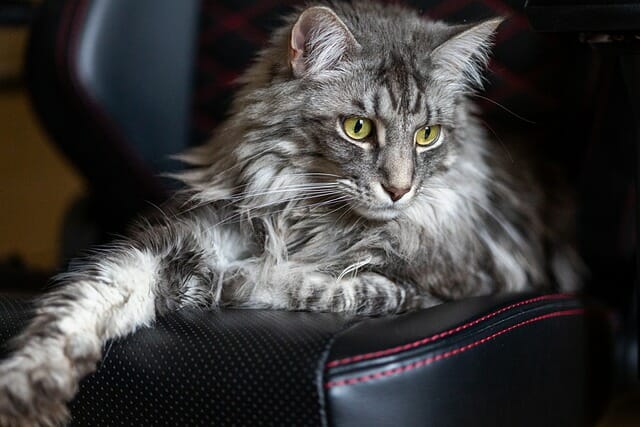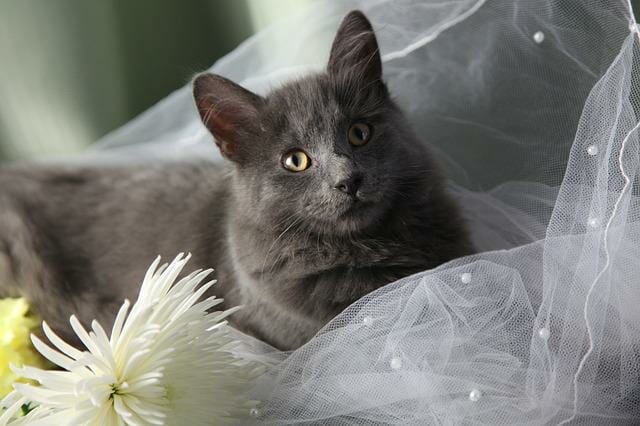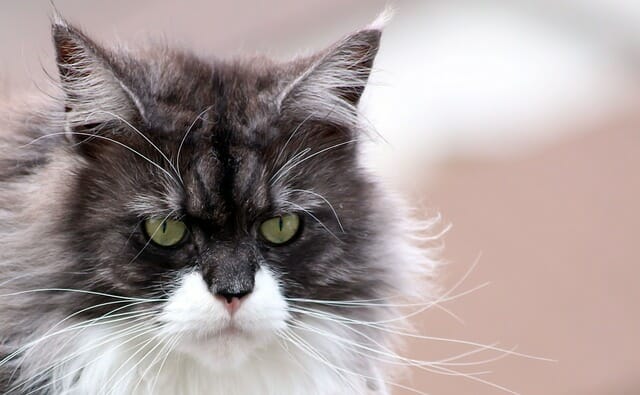Where Does Maine Coon Originate From: Getting to Know the Maine Coon
Maine Coons are a breed of domestic cat that is believed to have originated in Maine, according to VioVet. The breed likely evolved from local cats that lived in the area and were likely brought over by European settlers. Maine Coons were popular as farm cats and were valued for their hunting abilities and ability to adapt to the harsh New England climate. But how much is a Maine Coon cat? The cost of a Maine Coon cat can vary depending on factors such as pedigree, lineage, and the breeder’s reputation.
Table of Contents
Debunking Myths About Maine Coon’s Origin


Ship Cats
One theory suggests that the Maine Coon is descended from ship cats, which were brought to America by European seafarers. According to this theory, the cats that were best at catching mice and rats on board were kept and bred, and over time, they evolved into the Maine Coon.
Ship cats, also known as ship’s cats, were common on ships throughout history, particularly during the Age of Sail. Sailors valued these cats for their ability to control rodents, a serious problem on ships carrying food and other supplies. The cats were often treated as crew members and given food and water bowls.
Ship cats are believed to have played a role in developing several cat breeds, including the Maine Coon. According to one theory, the Maine Coon is descended from cats brought to America by European seafarers. These cats were kept on board ships to control the rodent population, and the cats that were best at catching mice and rats were selected for breeding. Over time, these cats evolved into the Maine Coon.
French Cats
There is a popular but unproven theory that the Maine Coon cat breed originated from French cats brought to America by Marie Antoinette during the French Revolution. In 1793, Marie Antoinette, the Queen of France, attempted to flee France with her family and many of her belongings, including her favorite Turkish Angora cats.
The queen’s ship was said to have been stopped in Maine, and she was forced to abandon her cats, which residents then took care of. The story suggests that the queen’s cats interbred with local cats, leading to the development of the Maine Coon.
While this theory is interesting, no evidence supports it, which is considered unlikely. For one, no historical records suggest that Marie Antoinette brought her cats with her during her attempted escape. Additionally, the physical characteristics of the Maine Coon, such as its large size and long fur, do not match those of the Turkish Angora cats that Marie Antoinette was said to have owned.
Racoon Cats
The theory that Maine Coon cats are descended from domestic cats interbred with raccoons is a popular myth and has been widely discredited by experts. While it is true that Maine Coon cats can have bushy tails and raccoon-like markings, this is simply a characteristic of the breed and is not a result of interbreeding with raccoons.
The origin of the name “Maine Coon” is also not related to raccoons. There are several theories about the name, but the most commonly accepted one is that the breed originated in Maine, and the “Coon” part of the name is derived from the word “raccoon” as a reference to the cat’s long, bushy tail, which was said to resemble that of a raccoon.
Domestic cats and raccoons are not closely related, and it is highly unlikely they could interbreed successfully. While there have been instances of cats and raccoons mating, the offspring are generally sterile and unable to reproduce, meaning they cannot pass on any traits to future generations.
Characteristics of the Maine Coon
Breeding
The breeding of Maine Coon cats is a complex process that requires careful selection of breeding pairs and adherence to strict breeding standards. For example, to breed Maine Coons, breeders typically select cats with distinctive physical characteristics, including their large size, thick fur, and distinctive ear tufts.


In addition to physical traits, breeders also consider temperament and health when selecting breeding pairs. Maine Coons are known for being friendly, sociable cats, and breeders aim to maintain these traits in their breeding lines. They also screen cats for potential health issues, such as hip dysplasia and heart problems, and only breed cats that are free from these conditions.
Once breeding pairs are selected, the mating process typically occurs naturally. Maine Coons are prolific breeders and typically have litters of 4 to 6 kittens, although larger ones are uncommon. The mother raises the kittens and usually stays with her for several months before they are ready to be adopted into new homes.
Physical Characteristics
The Maine Coon is a large and distinctive breed of cat known for its unique physical characteristics. Here are some of the key physical traits that are associated with the Maine Coon:
- Size: The Maine Coon is one of the largest breeds of domestic cats, with males weighing between 13-18 pounds and females weighing between 8-12 pounds.
- Body: The Maine Coon has a long, rectangular body with a broad chest and muscular legs. The hind legs are slightly longer than the front legs, which gives the cat a distinctive, sloping gait.
- Coat: The Maine Coon has a thick, soft coat to protect it from the harsh Maine winters. The coat is usually longer on the ruff, stomach, and tail and shorter on the back and sides.
- Ear Tufts: One of the most distinctive features of the Maine Coon is its long ear tufts, which are long, wispy hairs that grow from the tips of the ears.
- Tail: The Maine Coon has a long, bushy tail that is usually wider at the base and tapers to a point at the end. The tail is often held upright and is used to help the cat maintain balance.
- Head: The Maine Coon has a large, square-shaped head with a prominent forehead and high cheekbones. The eyes are large and expressive and are usually gold, green, or copper in color.
Temperament
The Maine Coon is known for its friendly, pleasant, and easygoing temperament. They are known for their loving and affectionate nature, often seeking attention and enjoying being petted and cuddled.
Maine Coons are active cats that enjoy playing games and interacting with their owners. They are often quite playful and enjoy toys that allow them to chase and pounce. Despite their large size, Maine Coons are generally quite gentle cats that are good with children and other pets.
They are also smart cats that are quick to learn and can be trained to do tricks and respond to commands. For example, Maine Coons are known for their distinctive meow, often compared to the sound of a chirping bird, and are quite vocal and enjoy communicating with their owners.
Lifespan
The Maine Coon is a relatively long-lived breed of cat, with an average lifespan of 12-15 years; however, with proper care and attention, some Maine Coons have been known to live well into their late teens or early twenties.
Several factors can influence a Maine Coon’s lifespan, including genetics, diet, exercise, and access to medical care. Maintaining a healthy diet and providing regular exercise can help to keep Maine Coons in good health and increase their lifespan. Regular veterinary check-ups and prompt treatment of any health issues can also help to ensure that Maine Coons live long and healthy lives.
Grooming Requirements


The Maine Coon has a long, soft coat that requires regular grooming to keep it healthy and free from tangles and matting. Here are some of the key grooming requirements for the Maine Coon:
- Brushing: The Maine Coon should be brushed at least once a week to remove loose hair and prevent matting. A slicker brush and a metal comb are useful for grooming the coat.
- Bathing: While the Maine Coon generally keeps its coat clean, occasional bathing may be necessary to remove dirt and oil. Use a mild shampoo and rinse thoroughly to avoid leaving any residue.
- Nail trimming: Regular nail trimming is important for maintaining the Maine Coon’s health and preventing overgrowth. Use cat-specific nail clippers, and don’t cut the quick (the blood vessel that runs through the nail).
- Dental care: Dental health is important for all cats, and the Maine Coon is no exception. Regular tooth brushing and dental check-ups can help to prevent periodontal disease and other dental issues.
- Ear cleaning: The Maine Coon’s long ear tufts can trap dirt and wax, leading to ear infections. Regular ear cleaning with a cat-specific ear cleaner can help to prevent this.
